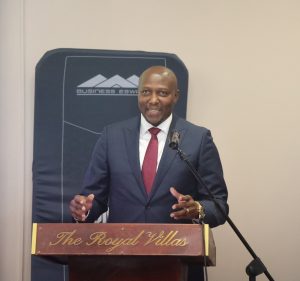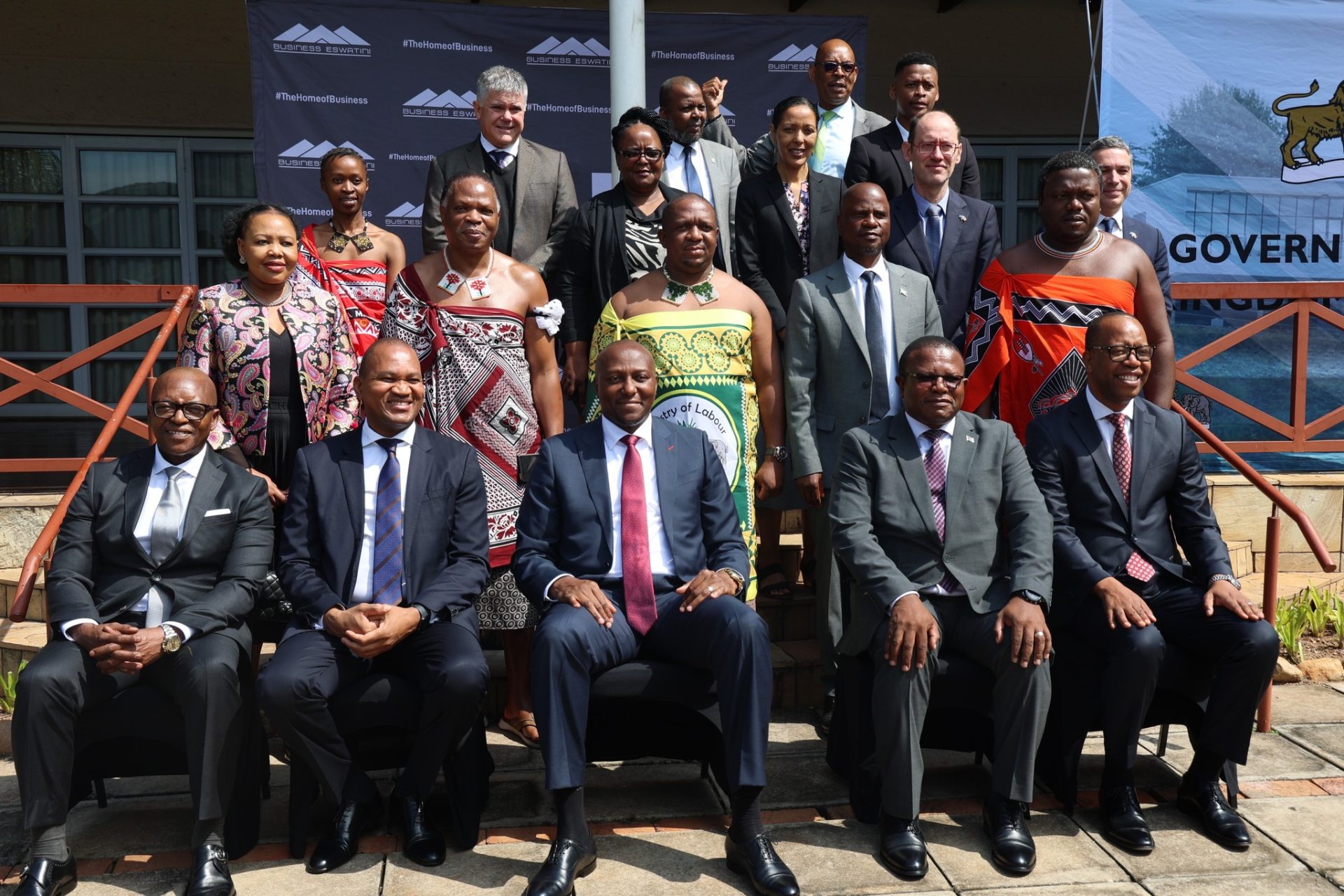By Ncaba Ntshakala
Prime Minister Russell Mmiso Dlamini has called for immediate and decisive action to strengthen the country’s economy, telling business and government leaders, “Let’s get cracking.”
Dlamini spoke at the 2nd Annual Business-to-Government Dialogue held in Ezulwini, where he emphasized that Eswatini stands at a pivotal stage in its economic journey, and it is time to transition from discussions to implementation.
The high-level dialogue, a collaboration between the Government of Eswatini and Business Eswatini, was held under the theme “Collaborate. Innovate.
RELATED: Lack of skills, competency in technology driven economy emerge
Execute: Strengthening Partnerships for a Thriving Economy for All.” The event brought together Cabinet Ministers, business leaders, development partners, and members of the diplomatic corps, all eager to chart a path towards economic transformation.
“It has been two years since the State-Business Relations (SBR) platform was launched, and a great deal of work has gone into defining the operational details of this initiative,” Dlamini said.
He praised both the government and the private sector for their dedication to laying a strong foundation for public-private cooperation.
Recognizing the support from international partners, he extended gratitude to the International Trade Centre (ITC) for providing technical assistance and to the European Union Delegation to Eswatini for their financial backing.
“Your support ensures that the reforms align with international best practices and that Eswatini remains competitive globally,” he remarked.
During his address, the Prime Minister launched key institutional structures aimed at accelerating Eswatini’s economic competitiveness.

These included the National Competitiveness Council (NCC), the State-Business Relations (SBR) Core Group, and four Technical Working Groups designed to drive policy reforms, improve infrastructure development, and enhance investment attraction.
“We are now ready to operationalize and accelerate our efforts,” he announced.
The Technical Working Groups will focus on four crucial areas: legal structures, competitive dynamics, mega projects, and support for Small, Micro, and Medium Enterprises (SMMEs).
The Prime Minister emphasized that each group has a clear mandate and will be expected to deliver tangible results.
“The legal structure group will institutionalize the SBR platform over the next 12 months, the competitiveness dynamics team will drive reforms to enhance the ease of doing business, the mega projects team will ensure strategic investment alignment, and the SMMEs team will address financing gaps and market expansion,” he detailed.
Acknowledging the importance of the private sector, Dlamini highlighted significant strides already being made in Eswatini’s economic landscape.
“Close to 200MW of pipeline projects have been approved in hydro, biomass, and solar power initiatives. This investment will strengthen our energy supply, ensuring consistency in the national grid,” he stated.
He further revealed that His Majesty’s Government is finalizing the launch of an investor one-stop shop under the Eswatini Investment Promotion Authority (EIPA), aimed at streamlining investment processes and reducing administrative burdens.
Eswatini’s economy has already begun to show positive signs of growth, according to the latest Economic Bulletin for Q4 2024. “Private sector credit grew by 2.4%, driven by increased activity in mining, manufacturing, transport, and construction.
RELATED: John Dramani Mahama returning as Ghana president on pledge to mend economy
Headline inflation fell to 3.6% from 4.0%, the Lilangeni strengthened against major currencies, and the economy recorded a trade surplus of E808 million. GDP growth is projected to average 5.4% in the medium term,” the Prime Minister reported.
These figures, he said, are a testament to the effectiveness of ongoing economic reforms.
Moroever, Dlamini called on the private sector to participate in the upcoming Japan EXPO 2025 in Osaka, describing it as an opportunity for Eswatini to showcase its innovation and investment potential on a global stage.
He also urged business leaders to actively engage in discussions surrounding key legislative reforms, including the Citizen Economic Empowerment Act Regulations and the Employment Bill.
“We need your practical insights to ensure that regulations are impactful and inclusive,” he said.
The Premier further reaffirmed his government’s commitment to strengthening collaboration, and he encouraged open dialogue and constructive engagement between the public and private sectors.
“Not every proposal can be immediately adopted, but each recommendation will receive rigorous review to gauge its feasibility and impact,” he assured.
He concluded his address by emphasizing that 2025 is a year of transformation for Eswatini, as declared by His Majesty during the State Opening of Parliament.
“By collaborating, innovating, and executing together, we can realize a future in which every liSwati shares the dividends of growth and prosperity,” he declared.
With that, he officially launched the National Competitiveness Council, the SBR Core Group, and the Technical Working Groups, before issuing his final words of encouragement: “Let’s get cracking.”


